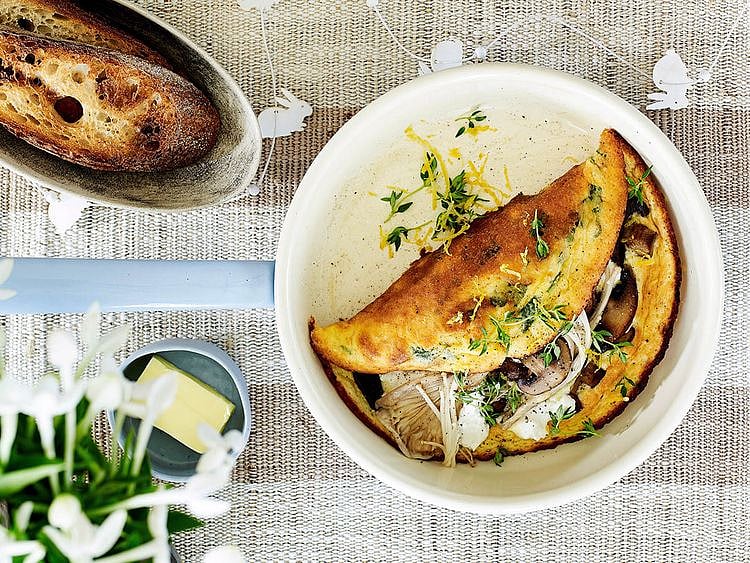Science behind the art and cooking
It comes naturally to some and some like me struggle to cook

There is a couple of things about cooking. A melange of spices doesn’t make a dish. Just dumping an unreasonable number of spices makes the dish pungent.
Every vegetable has its own flavour. Some vegetables need to be cooked more, some less, some need sautéing, some frying, some steaming, some braising, some pickling, some roasting. Chopped, diced, julienned, shredded, grated, slivered or ground.
A recipe demands items, method, and technique. Above all, the person who cooks must have a good SQ (smell quotient) and TQ (taste quotient). A simple veg curry can be made by just tempering it, adding the right amount of salt and cooking al dente.
Cooked with salt, for just the right time, trapping the natural aromas of the ingredients in it, can make the simplest of the dishes, heavenly. If it is over cooked or underdone, it ruins the dish.
One doesn’t require a complex recipe to make a scrumptious dish. A simple dish cooked to perfection, makes it delicious. I have seen my mom, my grand mom, my aunts etc, cook and have also learnt a few recipes from them. I am no food connoisseur, but I have learnt to enjoy the finer nuances of some dishes. There are ladies who do not follow conventional rules and just brew up mind blowing recipes which taste delectable.
When the mind visualises the dish, the tongue senses the tastes and flavours, the nose gets the whiff of the exquisite aroma, the ears hear the crunch, hiss and the sizzles, and when the eyes see the beautiful dish, that is when a dish is born. Cooking involves all the senses.
My great granny’s cooking
My great grandma would cook every dish by mere approximations. Just by looking at the dish she would know the amount of salt, which she would add with her bare hands and not spoon, she would know the dish is ready, even without tasting it, just by sight and aroma.
She would dish out a finger licking, lip-smacking, ambrosial, gourmet food. This kind of a cooking requires a different level of intelligence, aesthetic sense, patience and practice.
There is a magical aroma imparted in these dishes made by these experts. The kind of knowledge they had regarding mixing different types of food, to increase the nutritive value, is something that I lack.
Looking at the science aspect of the food we eat, one tries to apply what we learnt at school, that we need to eat a balanced diet. Steaming retains the vitamins, frying kills certain nutrients.
Which food are rich in iron, which one in calcium? What can we take with spinach to enhance the absorption of iron? Having innumerable questions, doubts, thoughts and after countless google searches, one is still left perplexed.
One would see to it that all the meals are incorporated with as many nutrients as possible. But weekends are cheat days and eating out is a pleasure, for all. Burgers, Pizzas, cuisines from different countries, there are plethora of choices when eating out.
There are a few age-old restaurants which serve their authentic or signature dishes which cannot be replicated. After having tried to make the dish at home, one always ends up saying, “It still doesn’t taste that way!” probably we lack the TQ and SQ that the original recipe demands.
The omelette challenge
Tastes differ from person to person: some like it hot, some like it cold, some like it spicy, some bland. There are so many ways people like their eggs, poached, half boiled, full boiled, sunny side up, omelette.
Talking about omelettes, when we were at a restaurant at a hotel it was very difficult for us to explain to the cook that we need an omelette with only veggies, with salt in it and cooked on both sides.
Despite explaining this to them, they ended up making an undercooked runny omelette. Which means that either the cook can make only a runny omelette, or we are challenging the cooks with our demands.
There are famous street vendors who are well known for certain dishes and people just flock to their stalls for a gastronomic extravaganza. The culinary science isn’t just confined to posh restaurants.
It is very difficult to make delicious food when one is in a bad mood. For no fault of the person, the dish might get burnt, there could be spilling, or one might drop the whole casserole, cut one’s finger while chopping or get burnt by accidentally touching a hot pan, leading to kitchen disasters. Cooking is an art which requires presence of mind and tranquillity, only then can a masterpiece be produced.
Food is very cultural too. There is a lot of cooking when there are festivals, feasting is festive. Food brings people together and people associate various food items to varied festivals, countries and societies.
It is not essential that one makes multiple dishes, one dish is more than enough if it is tasty. A family that eats together has happy memories of mealtime be it lunch, dinner or teatime. It automatically becomes fun time, enjoying the delicious dishes that has been served with love and pride.
To conclude I would like to say that the art and science of cooking is not easy, but it comes naturally to some and some like me struggle to cook. I suppose one needs to define struggle too. “I’m too serious to be a dilettante and too much a dabbler to be a professional.”
Anuradha Sharma is a freelancer based in Abu Dhabi
Sign up for the Daily Briefing
Get the latest news and updates straight to your inbox
Network Links
GN StoreDownload our app
© Al Nisr Publishing LLC 2026. All rights reserved.